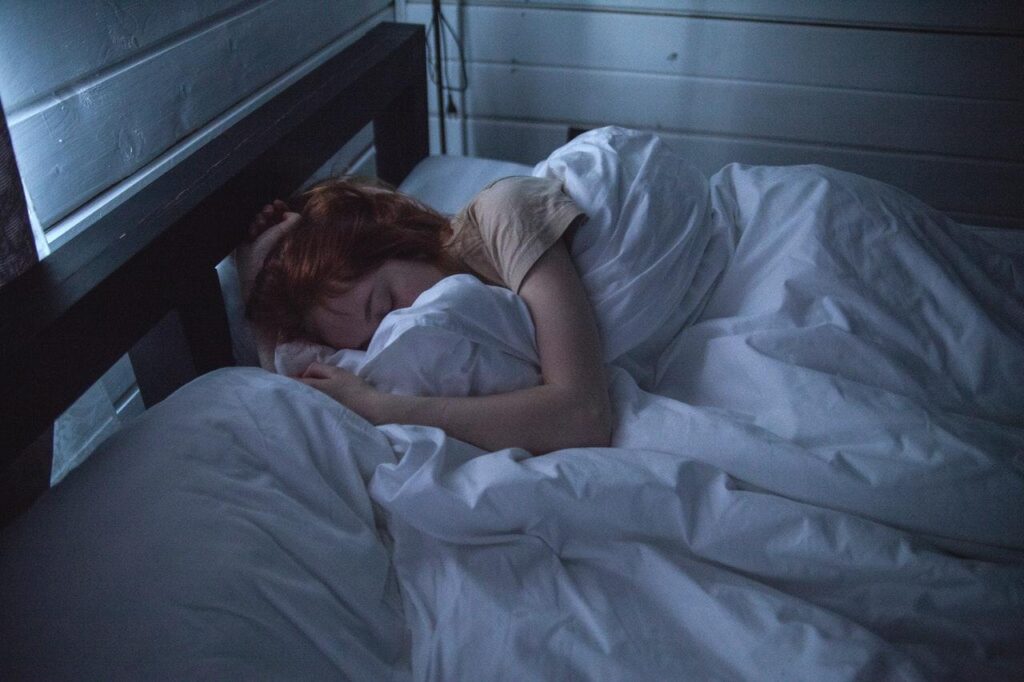Have you been waking up in the middle of your sleep with shortness of breath for no apparent reason? Are you snoring all night only to wake up with unbearable fatigue in the morning? All these symptoms are serious signs of a dangerous sleeping disorder and should never be taken lightly. If you are suffering from these symptoms, then you might be suffering from sleep apnea.
In psychology, sleep apnea is defined as a sleeping disorder where your breathing might suddenly stop for a few seconds or become extremely shallow while you are sleeping. There are different types of sleep apnea with distinct symptoms that may happen for different reasons. If this is the first time you come across this term, then here is everything you should know about sleep apnea, when to see a doctor, and how to deal with it.
Sleep Apnea Types
People who suffer from sleep apnea notice sudden stops and starts when it comes to their breathing in their sleep. There are three main types of scary sleeping disorder, obstructive sleep apnea, central sleep apnea, and complex sleep apnea disorder.
The first type is the most common form of sleep apnea that is a result of a sudden relaxation in the throat muscles that can lead to repeated breathing stops and starts. The second is more complicated because it usually happens due to failure from your brain to send the right signals for your breathing muscles for them to work properly. The third is the most dangerous form of sleep apnea, which combines the first two types of sleep apnea.
Leaving sleep apnea unattended and uncared for might lead to heart issues and other serious complications. If you have any doubts that this is what you might be suffering from, then seeking medical attention is vital.
When to See A Doctor?
Snoring might be treated lightly or taken as a joke, but it is a serious issue that shouldn’t be ignored, especially if it is accompanied by other issues, such as fatigue, restlessness, grogginess, dry mouth, waking up gasping or feeling smothered frequently, and sore throat.
If you are suffering from more than two symptoms, then it’s recommended to see a doctor. Depending on your case, a CPAP machine might be prescribed by your doctor to prevent further complications. As seen at https://oofgrid.com/top-3-portable-power-supplies-for-cpap-machines/, there are a few options to prevent any interruptions in the power supply of your CPAP machine. This point can’t be stressed enough as any sudden interruptions might lead to a lengthened period of apnea, which might cause serious complications, including heart stroke.
Sleep apnea sounds alarming because it is a serious condition that needs immediate medical intervention. With the right continuous positive airway pressure (CPAP) machine, you won’t have to worry about sleepless nights.
CPAP machines are the most commonly prescribed device to those with sleep apnea. They are used every night as you sleep and work by generating a steady flow of pressurized air to send oxygen into the nose and mouth through a mask. The air helps keep your airway open so you can breathe normally while you’re asleep. Your breathing will no longer have pauses, and your slumber won’t be disrupted.
The thought of having a running breathing device attached to you with a mask may seem uncomfortable and bothersome. Fortunately, there are CPAP masks that are snug yet light—you’ll barely feel that they’re there.
Severe complications include suffering from concentration problems, a high risk of accidents, high blood pressure, heart issues, anxiety, and brain damage.
Lifestyle Remedies
Depending on the severity of your case, wearing a CPAP mask at night might be an essential part of the treatment plan to avoid any complications. However, many people suffer from adapting to this machine, especially during the night when it’s calm and quiet. Even though this is necessary, there are other lifestyle changes that you can start implementing that might help you notice a huge difference in your symptoms.
Risk factors for sleep apnea include sex, as males are more likely to have this disorder, obesity, medication, and alcohol. While some risk factors might be out of our control, such as age and sex, there are some other alterations in our lifestyles that can help in managing and keeping this disorder under control. Here are a few of these lifestyle remedies.
Weight Loss
Being overweight or obese increase the risk of sleep apnea due to airway obstruction and narrowing in nasal passages. Maintaining a healthy weight is essential if you want to avoid these problems and limit the need for surgery or long-term CPAP therapy.
The Right Sleeping Position
Many people are quick to fall under the wrong impression that sleeping on their backs helps, however, a study found that the supine position might worsen symptoms. Sleeping on your side, on the other hand, can help your breathing pattern to get back to normal.

Dry air causes irritations in the respiratory system and might trigger an apnea episode. Using a humidifier adds more moisture to the air and helps in minimizing these episodes.
You should never be quick to dismiss any sudden changes in your sleeping pattern or behaviors. If you suddenly notice shortness of breath while sleeping, constant tossing and turning daytime fatigue, or snoring, then it’s recommended to see a doctor. Diagnosis is the first step in any treatment plan. Thus, never ignore your symptoms to avoid serious complications.

